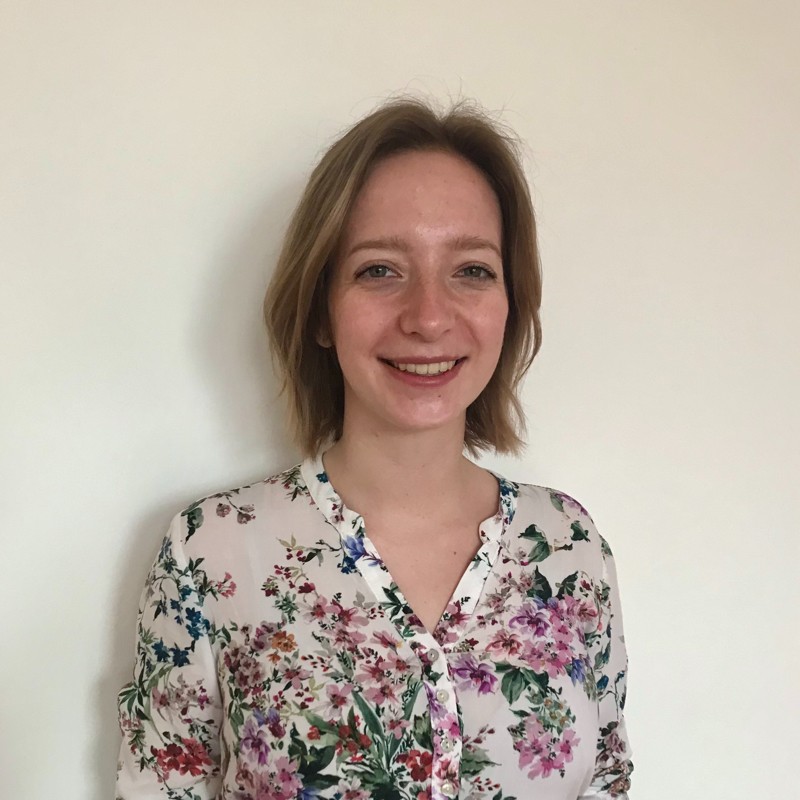 Izabela Skowrońska is working toward her master’s degree in medicinal and biological chemistry at the University of Edinburgh, Scotland. Right now, she’s completing her industrial placement (internship) in chemistry at Sygnature Discovery, a biotechnology company in Nottingham, England, while concentrating on her master’s thesis. Izabela was one of just four students from the University of Edinburgh awarded a summer sponsorship by Teledyne ISCO two years ago. Teledyne ISCO provided her with a CombiFlash NextGen chromatography system for a month to conduct her chosen experiment.
Izabela Skowrońska is working toward her master’s degree in medicinal and biological chemistry at the University of Edinburgh, Scotland. Right now, she’s completing her industrial placement (internship) in chemistry at Sygnature Discovery, a biotechnology company in Nottingham, England, while concentrating on her master’s thesis. Izabela was one of just four students from the University of Edinburgh awarded a summer sponsorship by Teledyne ISCO two years ago. Teledyne ISCO provided her with a CombiFlash NextGen chromatography system for a month to conduct her chosen experiment.
When the one-month program was complete, she wrote an application note on her experience and discoveries entitled “Comparing the efficiency and quality of liquid separation by chromatography using the manual column and the Teledyne ISCO Flash Chromatography system on the product obtained by a Knoevenagel Initiated Annelation Reaction.”
We congratulate her on her achievements thus far! Now, let’s meet Izabela.
Where are you from?
I’m from Bielsko-Biala in southern Poland. I lived there until I was 17, when I went to high school in Vienna, Austria. That was possible thanks to an academic scholarship from the Polish Scholarship Scheme. Vienna is my dream city. I’d like to move back there some day. I spent two amazing years there.
What first interested you in chemistry?
As a young child, I wanted to be a witch. Then I came to understand that magic wasn’t real. So, I became interested in science. Chemistry offers so many possibilities to develop as a person and a scientist. In Poland, we have an amazing role model for women in science, Maria Sklodowska, who was born in Warsaw. Outside Poland, she is more commonly known by her married name, Marie Curie.
What obstacles did you overcome or challenges did you face on your journey to becoming a chemist?
I’ve been very fortunate. Everyone around me has been very supportive. I can’t speak for other countries, but there is a common notion in Poland that if a person says they are studying chemistry, people assume they’re automatically going into medicine or academia. People need to think about becoming a scientist as a possible outcome.
What advice do you have for others pursuing a chemistry degree, looking for work in the field after graduation, or starting out in the workforce?
My advice would be, don’t be intimidated to ask questions of your professors or senior colleagues. I’ve found that in some cultures, it’s not that common to ask questions of other scientists. I wish someone had told me to not be afraid to ask questions when I first joined university. Others want you to succeed, so you should ask questions of a lecturer or experienced scientist.
What project did you work on when Teledyne ISCO sponsored your summer internship? What Teledyne system did you use? What was the result? How was the experience?
I got to use a CombiFlash NextGen. It was a great experience. It was two summers ago (2021), during the height of Covid. Most courses were online and we missed labs completely, so it was a great opportunity to get into the lab and do something beyond titrations.
The head of the organic teaching lab at the university prepares a lab manual for each year of students. Some reactions don't work and get taken out of the manual — that was the case here. He gave us a reaction that was meant to be done in second- or third-year lab, but the students repeatedly got no or nearly no yield and they didn't know why. He gave us that reaction to try so that on top of having a nice product to purify. We were successful, so the lab organisers finally knew where the issue was and if this experiment could be returned to the lab manual.
We ran manual columns against the CombiFlash. It took five hours to run a manual column and a half-hour to run the same sample on the CombiFlash. They use the CombiFlash at Sygnature Discovery, so when I came here I could say, ‘I did that before. I know how to do that.’
What are you doing now?
I’m working on my master’s thesis while doing my industrial placement at Sygnature Discovery. I’m working on a library of compounds. I’m doing my master’s thesis on the work I’m doing at Sygnature Discovery.
Where would you like to be/what would you like to be doing in five years?
I should be done with my doctorate in between three and four years. After that, I’ll head back into the industry. I have an interest in medicinal solutions in cosmetics, so I may pursue that.
What do you like to do when you’re not studying or working?
I read a lot. I like to swim and play badminton. I enjoy solving puzzles, including navigating through escape rooms.
Thanks for spending some time with us, Izabela. We certainly wish you much success and happiness on the road ahead!